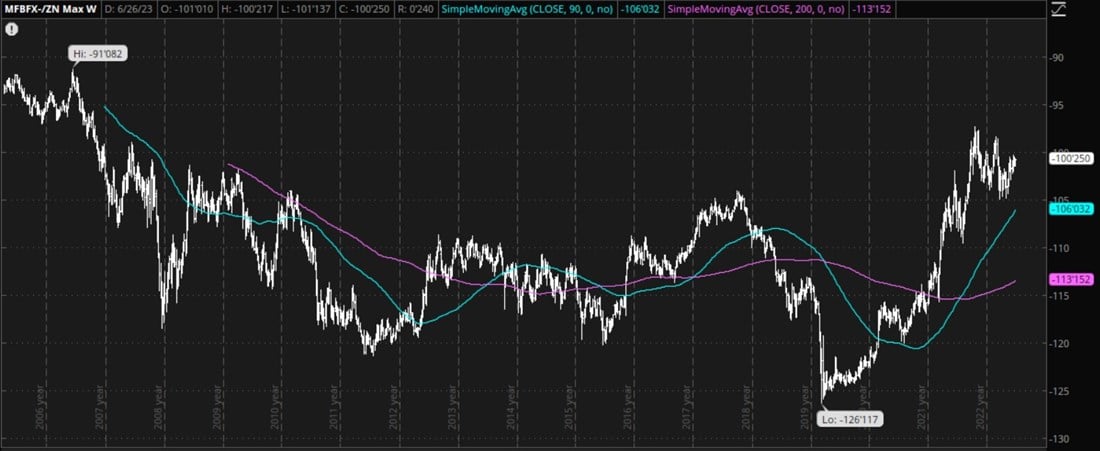
Jefferies Financial Group (NYSE: JEF) has missed earnings expectations by a massive 84.6%, making the second quarter of 2023 one of the least profitable quarters for the firm since the 2008 financial crisis.
Jefferies stock has been on a bit of a downtrend since the price peaked in 2021 at $44.7 per share, declining by as much as 42.5% to a low price of $25.7 in the middle of 2022, as the Federal Reserve began its new path to raising interest rates and causing a subsequent slowdown in the firm's deal-making activities.
Jefferies is floating with a weight tied to its ankle, as other names in the space have flown past it regarding stock performance. Interactive Brokers Group (NASDAQ: IBKR) has outperformed Jefferies stock by as much as 22% during the past 12 months, and the subsequent valuation multiples that these two competitors command are a solid foundation pointing to future perception. Relative valuations, considering what slowed Jefferies' earning power, may prove to be a new opportunity for investors considering the stock to be a possible buy.
A Few Bad Apples
Within the company's quarterly earnings press release, management pointed out the main reason behind the disappointing decline in earnings and other financial metrics. The industry is experiencing a cyclical slowdown, especially in moneymaking segments like investment banking and other activities. These slowdowns are due to the Fed raising its funding rate during 2022 and so far into 2023. As a direct result, the cost of financing — and of money itself — increases. It makes debt financing harder to acquire or more expensive and compresses the potential profit by acquiring companies with significant debt financing.
However impactful these cyclical slowdowns may be for Jefferies, this is not the company's first rodeo through the economic cycle. The main event that drove down earnings in the company today stems from a non-recurring factor that can revamp hopes and valuations after it reflects the true earning power of the firm during the quarter. A failed legacy merchant banking investment in OpNet, an unrelated segment of the core moneymaking operations of the business, brought upon a pre-tax $72 million loss.
Management is aware of underlying tailwinds developing in the underlying economy. By repurchasing up to 2.2 million shares of common stock during the quarter, for a value of approximately $67 million, management has let markets know that the "insider" view is one of a currently cheap stock. Investors today can acquire the stock at similar prices to those where management deemed it beneficial to buy, as the average purchase price effected in these share repurchases was $30.88 per share.
Finding Direction
Regarding valuations, management must catch up on the right track. Jefferies stock is trading at a discount to its book value by sporting a price-to-book value ratio of only 0.7x, alongside one of the lower bound price-to-earnings ratios throughout its history.
By selling for only 13.4x, Jefferies stock is discounted from its historical ranges of 20.0x to 25.0x. A possible purchase at a price close to the latest wave of management repurchases may be a good idea.






